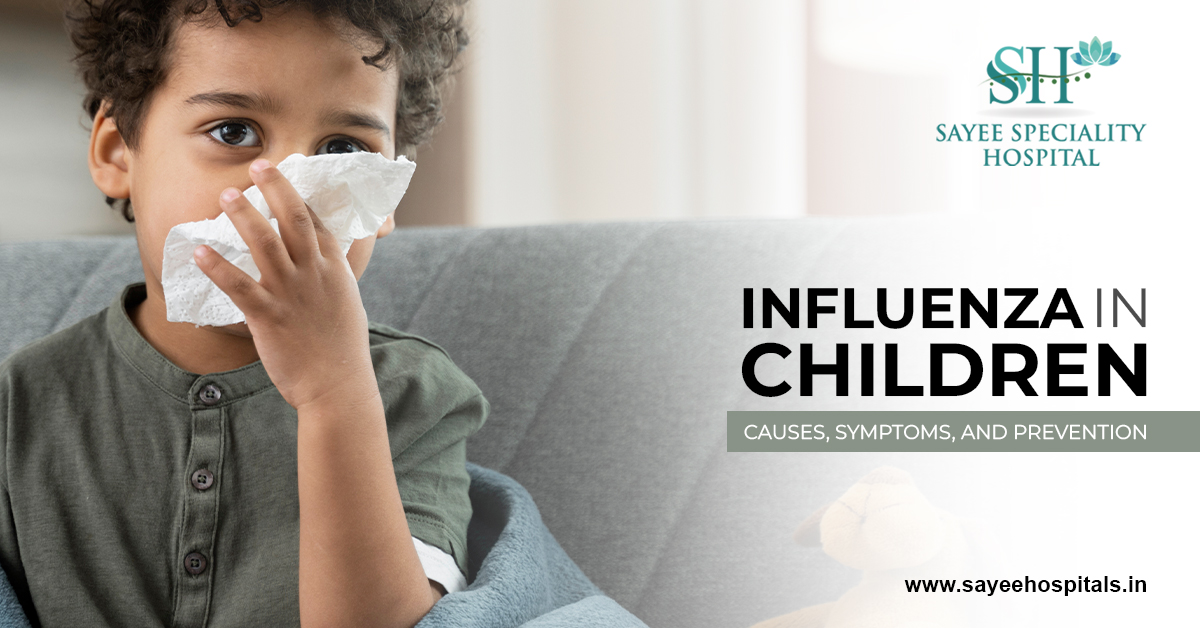Influenza, commonly known as the flu, is a contagious viral infection that affects the respiratory system, particularly the lungs and airways. While most children recover within a week, some may develop severe complications requiring hospitalization. In extreme cases, the flu can lead to pneumonia or even death.
Types of Influenza Viruses
- Influenza A & B: These strains cause seasonal outbreaks, particularly in winter, leading to widespread infections and increased hospitalizations. Since these viruses mutate frequently, new strains emerge yearly.
- Influenza C: Unlike A and B, this strain is less common, does not follow a seasonal pattern, and causes mild respiratory symptoms.
How Influenza Spreads
Children contract the flu virus through:
- Respiratory droplets released when an infected person coughs or sneezes.
- Direct contact with contaminated saliva or surfaces.
- Sharing items like toys, stationery, and electronic devices with infected individuals.
- Flu viruses can spread even before symptoms appear and remain contagious for up to a week after infection.
Common Symptoms
Children with influenza may experience:
- High fever (103–105°F or 39.4–40.5°C)
- Muscle and joint pain
- Runny or blocked nose
- Persistent cough
- Nausea and vomiting
- Fatigue and weakness
- Headache and sore throat
- Diarrhea (in some cases)
Diagnosis of Influenza
Doctors diagnose the flu based on symptoms, but laboratory tests like Polymerase Chain Reaction (PCR) can confirm the presence and strain of the virus. PCR tests are highly sensitive and help in detecting influenza more accurately than traditional methods.
Preventing Influenza in Children
To reduce the risk of flu infections:
- Annual flu vaccinations are essential, especially for children under five and those with weak immune systems.
- Hygiene practices: Teach children to wash hands frequently and cover their mouth while coughing or sneezing.
- Avoiding exposure: Keep children away from infected individuals.
- Disinfection: Regularly clean shared items like toys, towels, and school supplies.
Treatment and Home Care
- Ensure children stay hydrated and get ample rest.
- If symptoms worsen, consult a doctor for antiviral medications. These can reduce the severity and duration of the illness.
- Monitor for complications like difficulty breathing, persistent fever, or severe weakness.
By prioritizing timely vaccination and proper hygiene, the risk of influenza in children can be significantly reduced.
